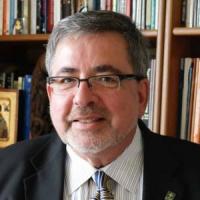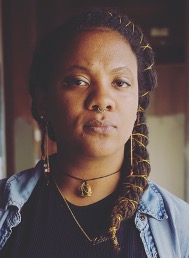Gerardo Marín Fellowship

In honor of the late Dr. Gerardo Marín, the Provost’s Office invites scholars from underrepresented ethnic communities to apply for prestigious Gerardo Marín Fellowships. Gerardo Marín, former Senior Vice Provost and Professor of Psychology, laid the foundation for USF’s current diversity and inclusion efforts throughout academic affairs, particularly through the recruitment and retention of a diverse faculty. Through mentoring faculty and diversifying hiring processes for professors, Dr. Marín changed the landscape of USF’s faculty and national professoriate by advocating for and successfully implementing through grants awarded by the James Irvine Foundation curricular and faculty diversity initiatives, which led to the development of the Irvine Dissertation Fellowship. The Irvine Dissertation Fellowship program was later adopted by the university as the Ethnic Minority Dissertation Fellowships and later renamed the Gerardo Marín Diversity Fellowships in 2016. Through the evolution of this program, USF has hosted over forty-five doctoral fellows and Postdoctoral fellows, several of whom have become faculty and senior administrators at USF or at other prestigious universities throughout the country.
Dissertation fellows complete their dissertations and initiate an ongoing program of scholarly or creative work while becoming familiar with the usual service responsibilities of a university faculty member. Fellows are mentored by a senior faculty member to strengthen the development of their independent research program. The Gerardo Marín fellows form a small cohort of scholars university-wide. Each fellow is mentored by a senior faculty member under the guidance of the Dean in partnership with the Vice Provost for Equity, Inclusion, and Faculty Excellence. Fellows teach one course in their discipline each semester and engage in service within their school/college or at the university-wide level, depending on interests. The program provides compensation and limited support for relocation and research-related expenses. Additional support includes access to office space and library privileges, professional development opportunities offered by the USF Tracy Seeley Center for Teaching Excellence and Center for Research, Artistic, and Scholarly Excellence, and a free membership with the National Center for Faculty Development and Diversity.
Gerardo Marín Scholar and Artist in Residence

Rivka Valérie Louissaint
Art + Architecture
College of Arts & Sciences
A graduate of the California College of the Arts BFA program and the University of California, Berkeley's MFA Program in Art Practice, Rivka is a rising Haitian artist who powerfully deals with questions of race, capitalist critique, and social justice in her studio practice and teaching. The recipient of UC Berkeley’s prestigious Outstanding Graduate Student Instructor Award in 2022, she has already exhibited her mixed-media work in solo and group exhibitions in the Bay Area and New York City, including at the Hubbell Street Gallery, SOMArts Cultural Center, and the Yerba Buena Center for the Arts in San Francisco. Her teaching interests include intergenerational pedagogical practices and, in her words, “explor[ing] the multidimensional nature and effects of the world’s present systems of oppression and exploitation.”
As a cultural worker, educator and community organizer, USF’s dedication to social justice, community engagement, and sustainable development aligns well with my own creative and pedagogical practices and beliefs. Given our global society’s current challenges, overcoming them will require scholars, educators, workers and community members to organize and take action to build the sustainable structures and society that we desperately need and deserve. Given its mission and context, USF provides fertile ground for this.